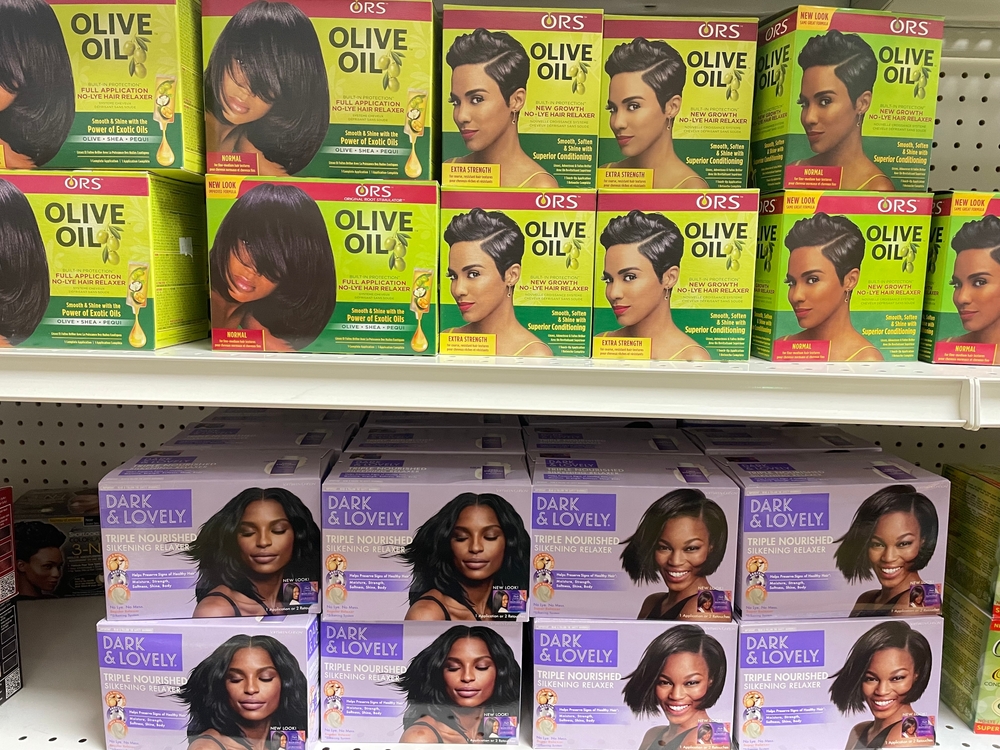In October 2023, it was revealed that the U.S. Food and Drug Administration (FDA) planned to propose a ban on chemical hair relaxers containing formaldehyde and formaldehyde-releasing chemicals. The proposal came just one year after yet another study found an association between ingredients in hair relaxers and an increased risk of cancer, specifically, uterine cancer.
Consumers have suffered life-changing and fatal illnesses linked to beauty products for decades, even though extensive research continues to show there are serious health risks. While a new ban is upcoming, it’s far too late for countless victims who trusted in manufacturers to create, market, and sell hair relaxers that are safe – when in fact, there’s widespread evidence indicating they may be extremely dangerous and the cause of nationwide suffering.
The official proposal to ban chemical hair relaxers with formaldehyde is set to come into effect in July 2024, two months later than originally announced. With the number of products that contain the known carcinogen on the market today, there may be significant changes to the industry in the coming years.
Some states have already taken the initiative and banned products containing formaldehyde. However it takes time to remove the ingredient and replace it with something else, so manufacturers in these states have a deadline to meet the new requirement. If they fail to adhere to the ban by then, their products will be taken off of store shelves.
What lies ahead is still largely unknown. A ban on formaldehyde and formaldehyde-releasing chemicals in hair relaxers is a step in the right direction, but many scientists have criticized the government and various agencies for allowing these ingredients to be in numerous products for years. Furthermore, they want to see other harmful and carcinogenic chemicals in hair relaxers banned too.
If and when that happens is unknown, and advocates and consumers are more concerned and angrier than ever. Just how long will it take to protect the public from products that put their health, and too often, their lives, in danger?
Hair Relaxer Lawsuits Continue to Be Filed
Chemical hair relaxer lawsuits claim that manufacturers failed to properly inform consumers about the risks of certain cancers and that they misrepresented their products. These product liability lawsuits may be quite costly for the defendants as mounting evidence continues to connect chemicals in hair relaxers to serious health issues.
There are currently thousands of hair relaxer lawsuits against major retail brands like L’Oreal. In early 2023, the majority of cases were consolidated into multidistrict litigation (MDL). Given the scale of the MDL, it will take significant time to complete pretrial proceedings, with the first bellwether trials to occur in late 2025 and early 2026.
Overall, the upcoming ban on formaldehyde in chemical hair relaxers is likely to strengthen lawsuits. While the number of lawsuits added to the hair relaxer MDL each month has slowed, additional lawsuits are expected to be filed over the next year. Consumers are still learning about the risks of uterine, breast, and ovarian cancer and reproductive issues that may be caused by chemical hair straighteners. Each day, there is greater public awareness of the dangers and possibility that the illnesses consumers are suffering from may not have developed if it weren’t for chemical exposure from using certain products.
The Possible Dangers of Chemical Hair Relaxers
Several studies over the past decade have been connecting cancers and reproductive issues to chemical hair relaxers. One such study showed participants who used chemical relaxers at least four times a year were more than twice as likely to be diagnosed with uterine cancer.
Many hair relaxers contain parabens, formaldehyde, bisphenol A, metals, and other harmful ingredients. Research has shown people who use hair relaxers are at risk of absorbing these endocrine-disrupting and carcinogenic chemicals through the scalp. Since heat is usually used during treatment if a burn or lesion occurs, the risk of absorbing potentially harmful and carcinogenic chemicals like formaldehyde increases.
Due to Western bias and beauty standards, chemical hair relaxers are more commonly marketed to and used by Black and Latina women to straighten tightly coiled and coarse hair types. As a result, women in these demographics are suffering more health issues than others because they began using them regularly at a young age. Sadly, many plaintiffs in hair straightener cancer lawsuits used hair relaxers for decades before learning of the risks.
A ban on formaldehyde has brought some relief to consumers and advocates and will spur important industry changes to how these beauty products are made. But whether or not other ingredients that experts argue are just as dangerous will be banned is unknown. After all, there’s a lot of valid skepticism given how long it took to take this first step.
Filing a Hair Relaxer Lawsuit
There’s mounting evidence that strongly associates chemicals in hair relaxers with a range of hormone-related cancers and reproductive issues. A ban on formaldehyde and formaldehyde-releasing chemicals like methylene glycol in these products shows important steps are being taken to protect public health.
As the hair relaxer MDL progresses and cases continue to be filed, the ban may lead to quicker and even larger settlement offers to plaintiffs. It also supports the notion there are valid concerns about illnesses that may be caused by using relaxers.
Dangerous product lawsuits are complex, but the right legal representation can ensure victims’ rights are protected, and companies are held liable for failing to ensure the safety of consumers. Hiring a lawyer can help hair straightener cancer victims get the justice and compensation they deserve for harm they never should have endured. Damages may be sought for medical bills, pain and suffering, mental and emotional anguish, and more.
Anyone who used chemical hair relaxers and developed an illness associated with these products should speak to an attorney sooner rather than later. While you don’t need an attorney to file a lawsuit, there are often multiple legal avenues to consider. And with a statute of limitations in each state, it’s easy to miss the deadline to file.



